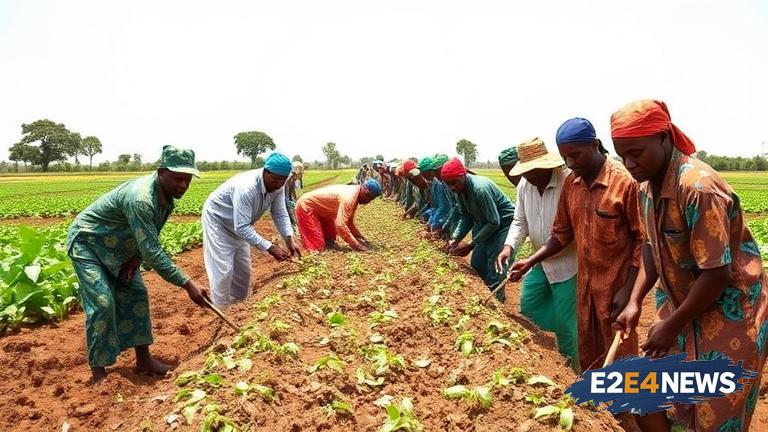The Kano state government has taken a significant step towards boosting the agricultural sector by employing 1038 extension workers. This move is expected to enhance agricultural productivity, improve food security, and increase the income of farmers in the state. The extension workers will be responsible for providing technical assistance, training, and support to farmers on best practices, new technologies, and innovative methods of farming. They will also help farmers to identify and address challenges affecting their crops and livestock, such as pests, diseases, and soil degradation. The recruitment of extension workers is part of the state government’s efforts to diversify the economy, reduce dependence on oil, and promote sustainable agriculture. The state government has also invested in agricultural infrastructure, including irrigation systems, farm equipment, and storage facilities. The extension workers will work closely with farmers, agricultural researchers, and other stakeholders to develop and implement effective agricultural strategies. They will also facilitate access to credit, markets, and other resources for farmers. The employment of extension workers is a welcome development for farmers in Kano state, who have been facing numerous challenges, including limited access to credit, inadequate infrastructure, and lack of technical expertise. The extension workers will help to bridge the knowledge gap between farmers and researchers, and facilitate the adoption of new technologies and innovations in agriculture. The state government’s investment in agriculture is expected to have a positive impact on the economy, as agriculture is a significant contributor to the state’s GDP. The recruitment of extension workers is also expected to create jobs and stimulate economic growth in rural areas. The Kano state government has also established partnerships with international organizations, NGOs, and private sector companies to support the development of the agricultural sector. These partnerships will provide access to funding, technical expertise, and markets for farmers. The state government has also launched initiatives to promote agricultural entrepreneurship, particularly among youth and women. The extension workers will play a critical role in supporting these initiatives and promoting agricultural entrepreneurship. The employment of extension workers is a significant milestone in the state government’s efforts to transform the agricultural sector and make it more productive, competitive, and sustainable. The state government has also committed to providing ongoing training and capacity building for the extension workers to ensure that they have the necessary skills and knowledge to support farmers effectively. The recruitment of extension workers is a positive development for the agricultural sector in Kano state, and it is expected to have a significant impact on the lives of farmers and rural communities. The state government’s investment in agriculture is a testament to its commitment to promoting economic growth, reducing poverty, and improving food security. The extension workers will be deployed to various local government areas in the state, where they will work closely with farmers, extension agents, and other stakeholders to promote agricultural development. The state government has also established a monitoring and evaluation system to track the performance of the extension workers and assess the impact of the program on agricultural productivity and food security.
